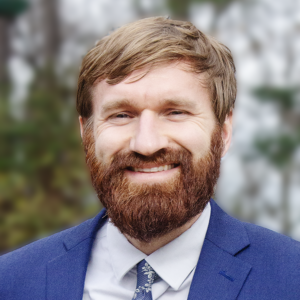September 07, 2023
“If you study the Bible a lot, you might become a Baptist!” This snarky comment, offered in response to an online ad for Wesley Biblical Seminary, is of course true. A Methodist who studies the Bible might become a Baptist, just as a Baptist who studies the Bible might become a Methodist. A properly inductive approach to Bible study renders theological convictions open to revision. Nevertheless, I suspect that behind the obvious truism lies a subtle accusation: Wesleyans are soft on the Bible.
Such an accusation, unfortunately, carries some weight. Consider the exchange between Pastor Adam Hamilton and Professor Bill Arnold, both members of the United Methodist Church. In his book, Seeing Gray in a World of Black and White (2008), Hamilton argued for a more open position on the question of homosexuality. In his response, Seeing Black and White in a Gray World (2014), Arnold argued for maintaining the church’s traditional stance. What I found striking in this exchange, however, was a point of agreement. Hamilton suggested that Methodists should strike a middle path between the Jesus Seminar on the left and the Evangelical Theological Society on the right. (The Jesus Seminar is a group of scholars known for their extreme skepticism on the historical reliability of the Gospels, and the Evangelical Theological Society is a group of scholars who affirm that the Bible “is the Word of God written and is therefore inerrant in the autographs.”) While Arnold had many disagreements with Hamilton, this was not one of them. According to Arnold, “Neither the Evangelical Theological Society nor the Jesus Seminar is a natural association for Methodists.”
If there be one falsehood in the Bible, there may be a thousand; neither can it proceed from the God of truth.”
Dr. Arnold is an esteemed scholar and a friend, but as both a Methodist and a member of the Evangelical Theological Society, I must disagree with him here. There is nothing un-Wesleyan about the confession that the Bible is the inerrant Word of God. On the contrary, it is the denial of inerrancy that is un-Wesleyan. According to John Wesley, “If there be one falsehood in the Bible, there may be a thousand; neither can it proceed from the God of truth” (Works [1872 ed.] 9.481). Elsewhere, in response to the suggestion that the Bible may contain “trifling errors in circumstances of small importance” (Warburton, Office and Operations, 36), Wesley retorts, “Nay, will not the allowing there is any error in Scripture shake the authority of the whole?” (Works 11.504). It is important to note here that Wesley’s doctrine of biblical inerrancy is no innovation. In these statements, Wesley is simply articulating the traditional view of Scripture (see, for example, Augustine Letters 28.3, 5; 82.3).
The Methodist movement is in a time of crisis and change. The United Methodist Church is splintering, and the Global Methodist Church is emerging. Moreover, the dispute that is dividing the United Methodist Church is not confined to that denomination but has to some degree impacted the many other branches of the Wesleyan tradition. What seems clear in this turbulent time is that the divide within Methodism ultimately springs from a weak view of the authority of Scripture. As I reflect on the current state of the Methodist movement, I am reminded of the words of C. S. Lewis: “If you are on the wrong road, progress means doing an about-turn and walking back to the right road; and in that case the man who turns back soonest is the most progressive man” (Mere Christianity). Now is the time for Methodists to be truly progressive and return to the traditional doctrine of Scripture articulated by Wesley.
![]()
 Dr. Murray Vasser serves as Assistant Professor of New Testament Studies at Wesley Biblical Seminary. Follow his blog at https://www.murrayvasser.com/blog.
Dr. Murray Vasser serves as Assistant Professor of New Testament Studies at Wesley Biblical Seminary. Follow his blog at https://www.murrayvasser.com/blog.
